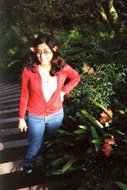Right now the Painted Page exhibition at the new Folio Society Gallery @ the British Library is showing Images of medieval life in the Luttrell Psalter. You can view the original 13th Century illuminated mansuscript in the John Ritblat Gallery also at the BL.
The exhibition uses a mix of facsimile images of the manuscript + technology to make what is usually considered ‘for antiquarian interests only‘ an enjoyable, interactive experience and accessible to the public. There are explanatory notes on what the various icons and imagery might have meant + their social significance: providing insight into the 13th century world and how they may have viewed their reality and their life. Which is what’s interesting about illuminated (i.e. illustrated) manuscripts of course. The metaphorical and allegorical nature of medieval imagery and art is particularly interesting to me. Generally I’m interested in the social aspects of history.
The exhibition is free and runs until 7 January 2007. There is some fantastic technology at work here - the ‘Turning the pages‘ interactive feature is loads of fun and hopefully will soon be out of the ‘innovative’ bracket into ‘usual IT bracket’ : hmm let’s see.
** The John Ritblat Gallery showcases the ‘treasures’ of the British Library drawn from the millions of items they have in their collection: there’s a new room dedicated to the Magna Carta.
***
Illuminated manuscripts are the most common historical artefacts from the Middle Ages and the best surviving specimens of medieval art. And for some earlier periods of history they often are the only surviving examples of painting.
“An illuminated manuscript is a manuscript in which the text is supplemented by the addition of decoration or illustration, such as decorated initials, borders and miniatures. In the strictest definition of the term, an illuminated manuscript only refers to manuscripts decorated with gold or silver. However, in both common usage and modern scholarship, the term is now used to refer to any decorated manuscript.”
You can find out more on this fascinating topic on wikipedia and the Koninklijke Bibliotheek - the National Library of the Netherlands



No comments:
Post a Comment